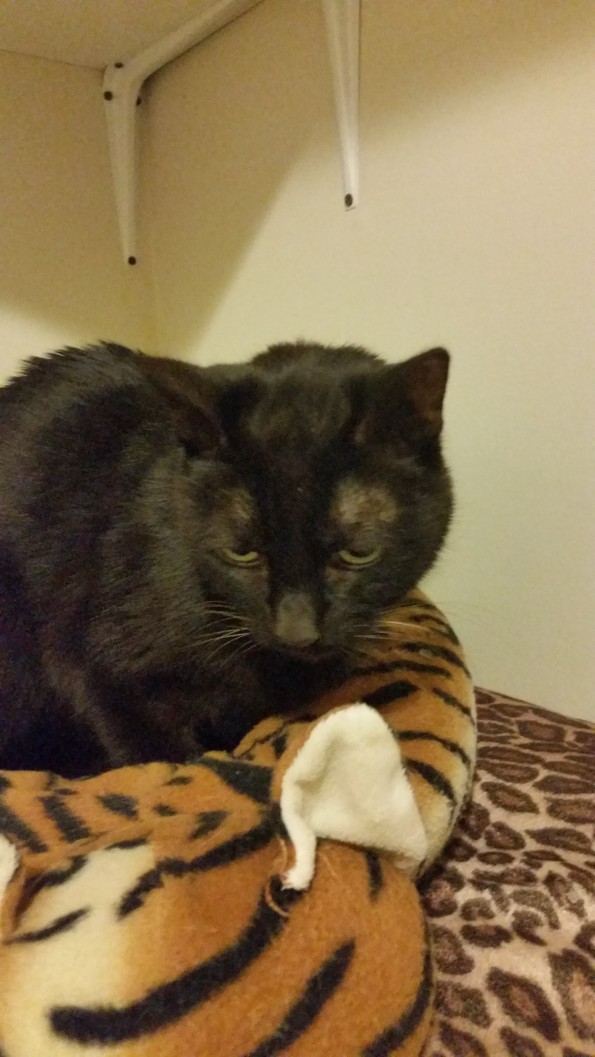
As cats age metabolic changes occur. The top 6 problems cats endure as they age is renal failure, irritated bowel disease, pancreatitis, hyperthyroidism, diabetes and lymphoma. Any one of these diseases may cause vomiting, weight loss, unkempt coat, diarrhea, lack or increased appetite, heart murmurer, excessive drinking, excessive urination and lethargy.
The cat’s symptoms may be very subtle at first, so the owner may not notice. As the cat’s disease becomes more advanced is usually when the owner takes notice and calls for an examination. Renal disease, diabetes and hyperthyroidism can be detected by blood work, whereas irritated bowel disease, pancreatitis and lymphoma is more likely to be diagnosed by ultrasound. Most of these illnesses can be controlled or cured with medications and prescription foods.
What makes pancreatitis so special among the listed 6 aliments? Pancreatitis is very difficult to diagnose. Most patients suffer from vomiting, diarrhea, lethargy and anorexia. Cats with irritated bowel and lymphoma also have these symptoms. Blood work for these three diseases may be totally normal with an exception of a stress leukogram (abnormal white blood cell count) and possible low protein levels ( there is a specific test for pancreatitis but false positives may occur). An ultrasound is the best diagnostic tool for diagnosing and distinguishing between the three illnesses. The ultrasound will visual the size, shape and consistency of the pancreas. It will inform the veterinarian if the intestine walls are thicken and local lymph nodes are involved. With pancreatitis, the intestinal walls and lymph nodes are usually normal.
Treatment for pancreatitis consist of feeding only a novel protein diet, cerenia (antispasmodic/anti-gas/anti-nausea medication), metronidazole (intestinal antibiotic) and steroid (decreases inflammation and prevents scarring of the pancreas). Sub- Q or IV fluids may need to be given to re-hydrate patients that are critical. Probiotics and Vit b12 injection also play a big part in getting the intestinal tract healthy. An appetite stimulant is also sometimes dispensed to help the cat regain it’s appetite. Cats with this illness will relapse from time to time once their pancreatitis has been under control.
If you own an older cat, it is important to establish a relationship with a cat friendly veterinary hospital. Make sure your furry friend has annual examinations and blood work to help determine the over all health of your geriatric cat. Any signs of vomiting, diarrhea, anorexia, lack of grooming, call Pet Authority Animal Hospital in Waterford Macomb immediately.
The picture of the senior cat posted above is my own personal cat, Mousse, who has been diagnosed with pancreatitis 3 years ago. He is currently doing well with metronidazole, steroids, cerenia, novel protein diet and an appetite stimulant every 3rd day. Mousse will be turning 18 yrs. old this summer.
From the other side of the exam table,
Dr. Gloria Williams


